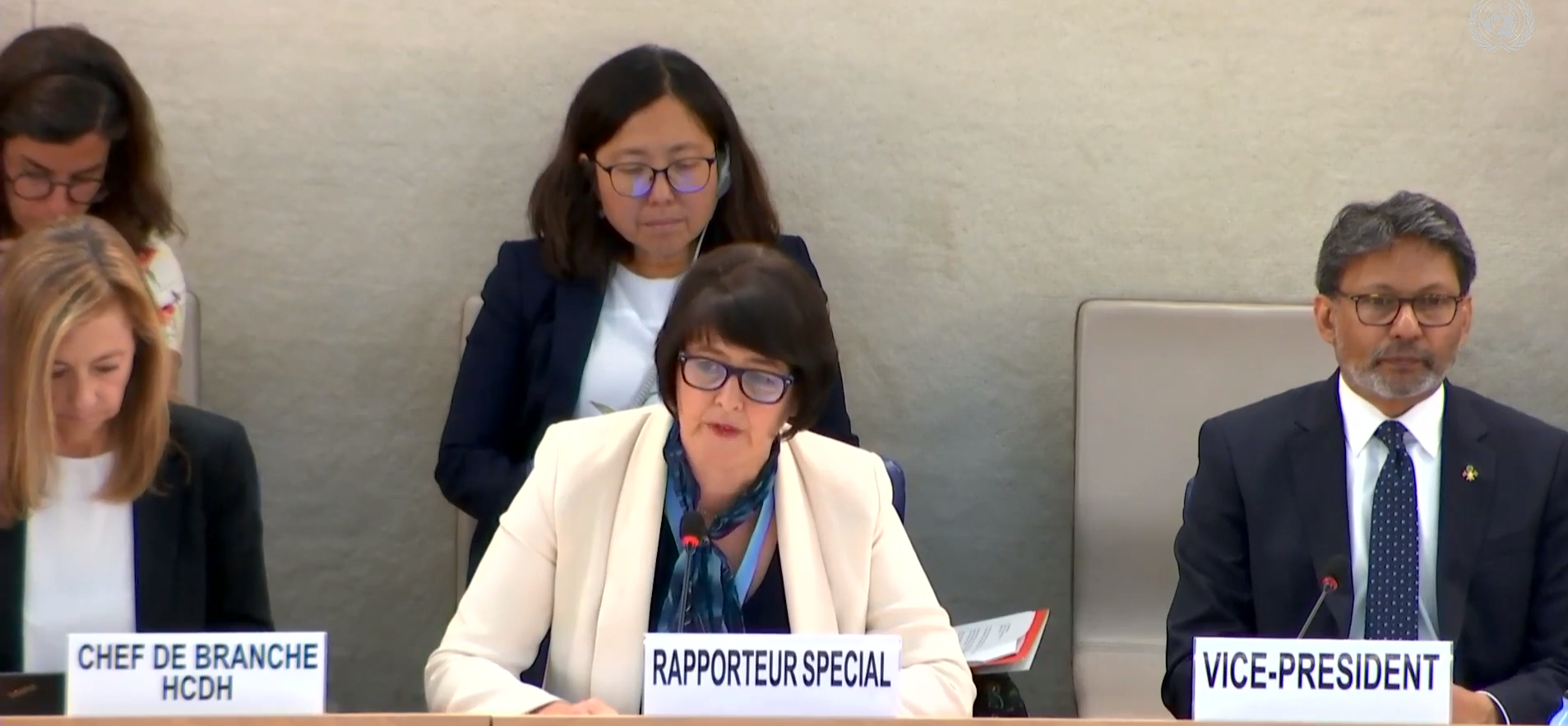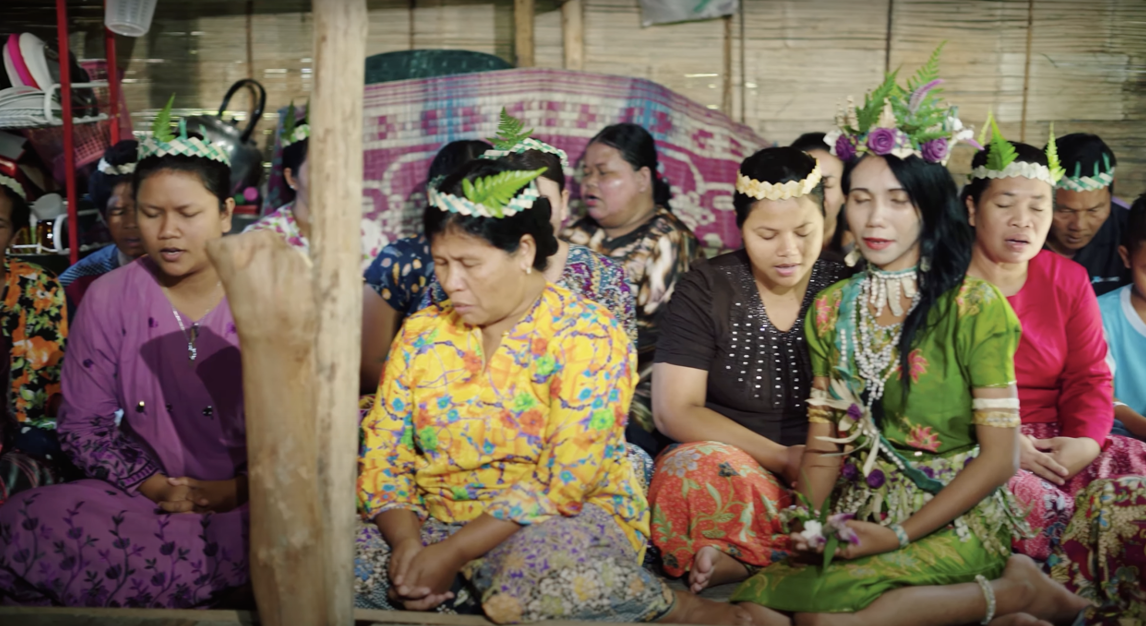By Batoul ALANANY / GICJ

Displacement, whether it occurs internally or across borders, heightens the risks of trafficking in persons and imposes responsibilities on states to prevent it and ensure protection for victims or individuals at risk of trafficking. Restricting access to asylum and other forms of international protection is likely to increase the vulnerability to trafficking by forcing people into precarious and unsafe situations.
On the 28th of June, in an Interactive dialogue during the 53rd HRC, Ms. Siobhán Mullally, the Special Rapporteur on trafficking in persons, has expressed serious concern about the inadequate response of States to combat human trafficking. She highlighted the use of accelerated procedures to determine refugee status and the implementation of "push-back" practices at borders as alarming trends that undermine the full identification and protection of trafficking victims and violate the principle of non-refoulement. Mullally stressed the importance of expanding safe and regular migration opportunities, establishing additional pathways for individuals with protection needs, and ensuring access to asylum and international protection as key measures to prevent trafficking and protect victims. She emphasised that vulnerabilities to exploitation are heightened in situations of displacement and statelessness, such as family fragmentation, loss of livelihoods, and displacement into insecure relief camps.
Mullally specifically drew attention to the prevalence of trafficking in South Sudan and the need for coordinated efforts to prevent all forms of exploitation, particularly child trafficking and abductions leading to child marriage, child labor, and recruitment by armed forces. She highlighted the impact of gender inequality and sexual violence on trafficking for sexual exploitation, particularly during conflicts, and called for urgent measures to protect vulnerable individuals, provide assistance and support, and ensure access to remedies. The report also emphasises the vulnerabilities faced by internally displaced persons, refugees (especially unaccompanied and separated children), and migrant workers.
During her visit to Bangladesh, Mullally commended the country's efforts in hosting Rohingya refugees and now calls for continued international support. She raised concerns about trafficking within Myanmar, including sexual exploitation and child marriage, and emphasised the need to strengthen child protection systems and address gender inequality. The report underscores the risks of trafficking in the context of labour migration and emphasises the importance of expanding regular migration opportunities, particularly for women, along with reinforced recruitment regulations.
Geneva International Centre for Justice (GICJ) expresses its support for the Special Rapporteur on Trafficking and welcomes the presented report. The organisation joins the Special Rapporteur in calling for decisive action from States to effectively protect human rights of all persons including those subject to trafficking, the most contemporary form of slavery. GICJ urges all states to intensify their efforts in engaging with human rights mechanisms, demonstrating their commitment to the entire process of human rights monitoring of trafficked persons. The organisation calls on States to fulfil their obligations comprehensively and in a timely manner with the human rights Treaty Bodies, aiming for enhanced protection of human rights on a global scale by tackling its 3 aspects prevention, legal status of victims, and conflict situations.
A full report will be published soon.
Trafficking, Women and Children, specialrapporteur, HRC53, humanrightscouncil, Geneva International Centre for Justice







